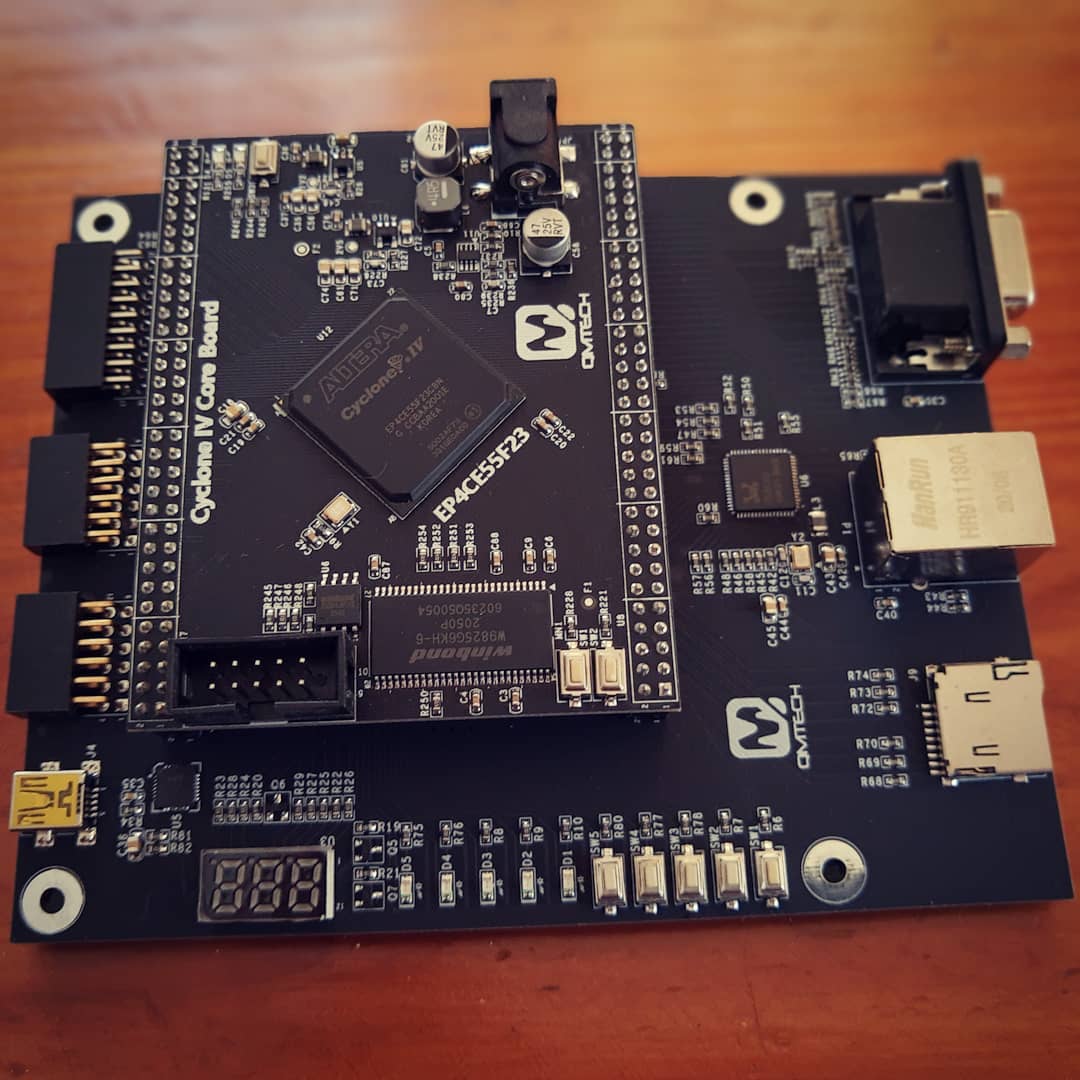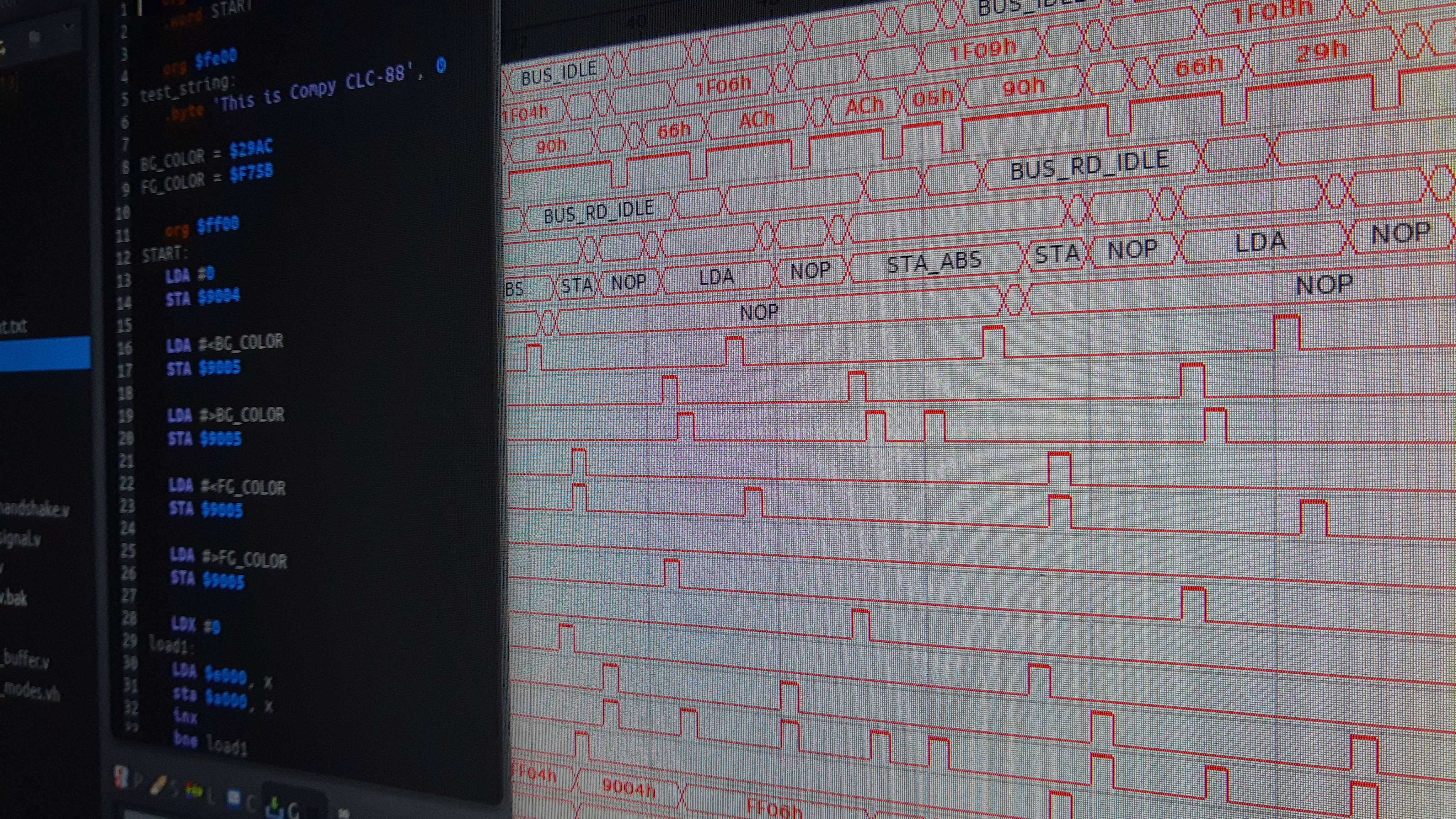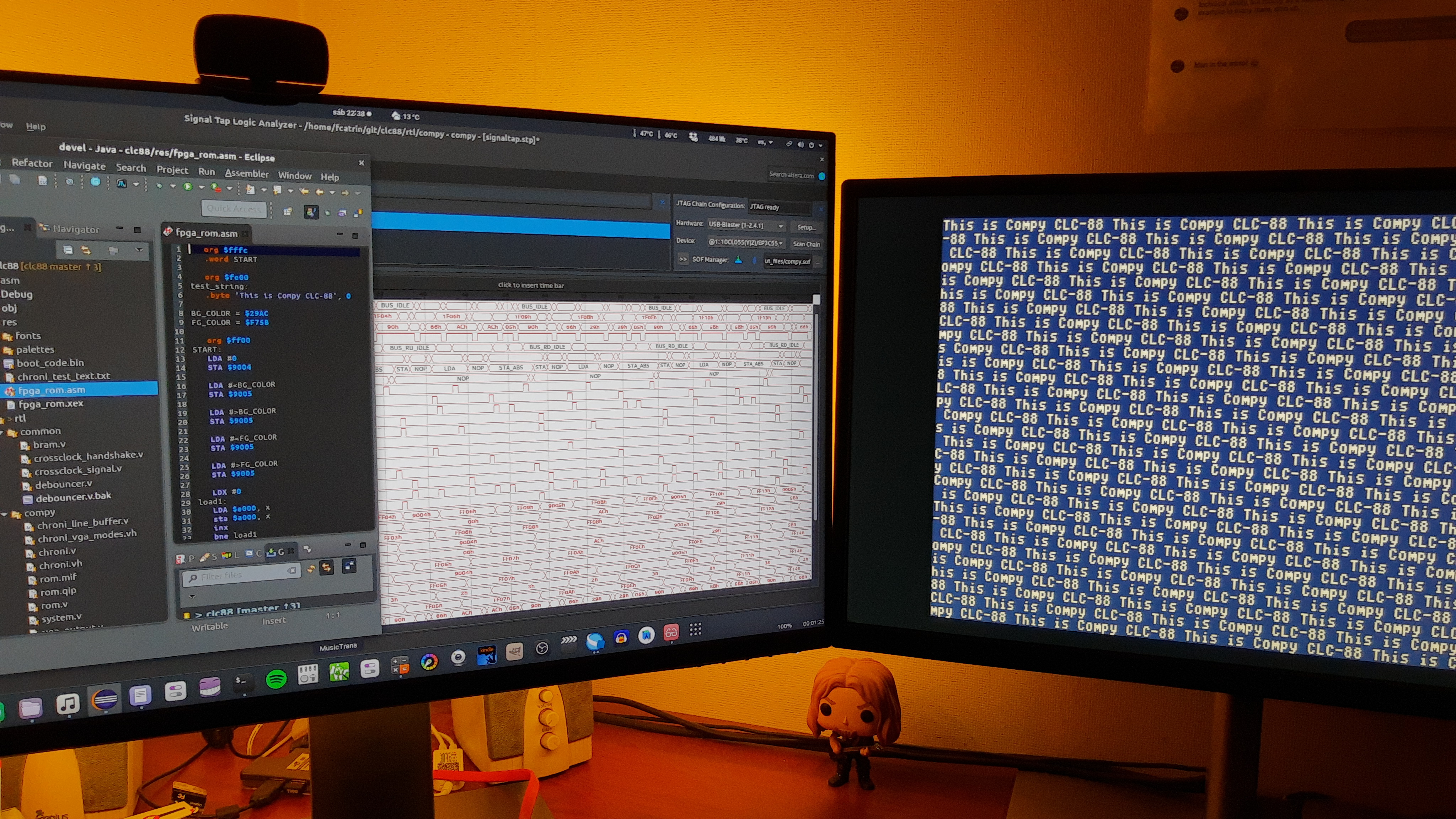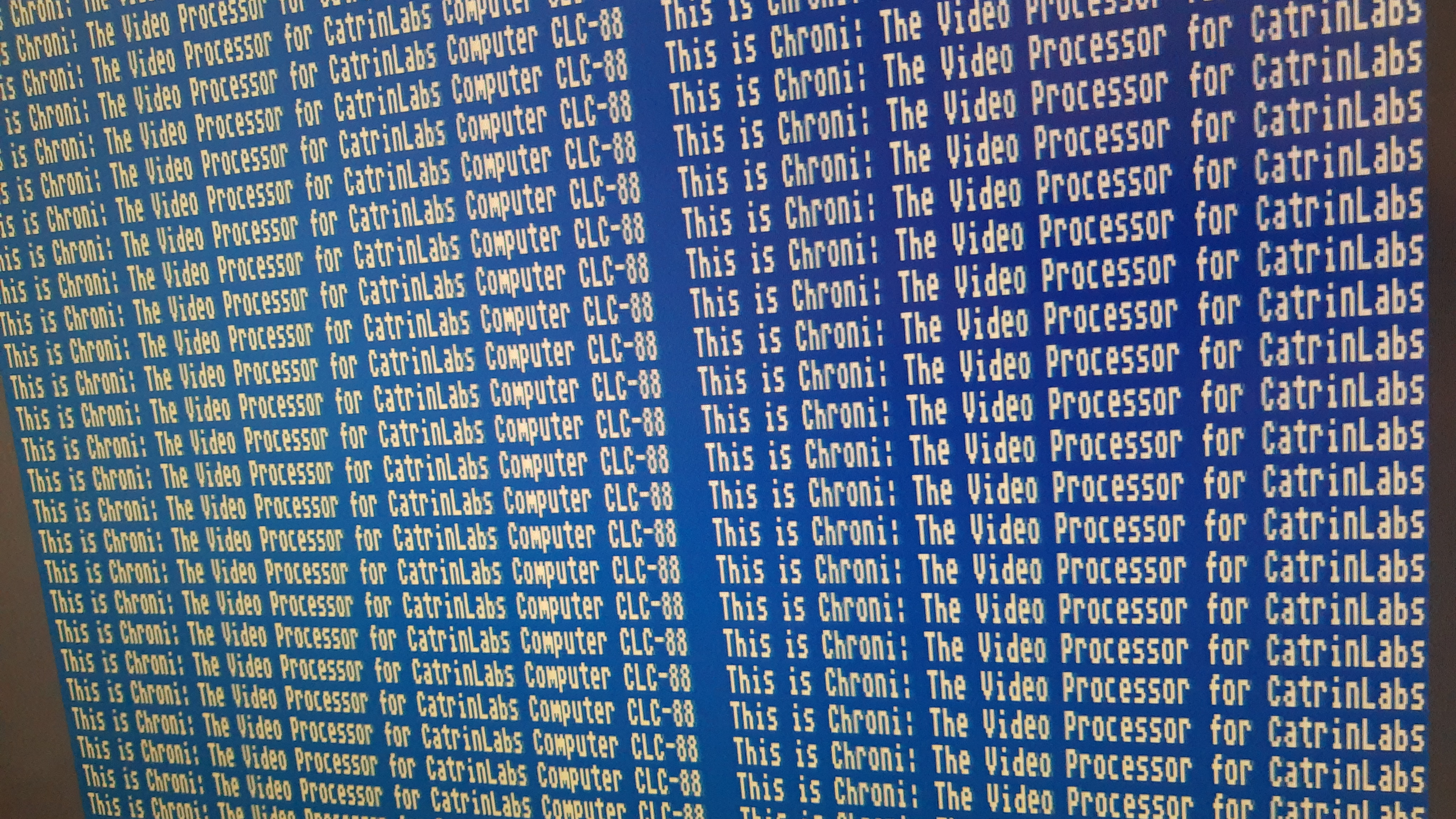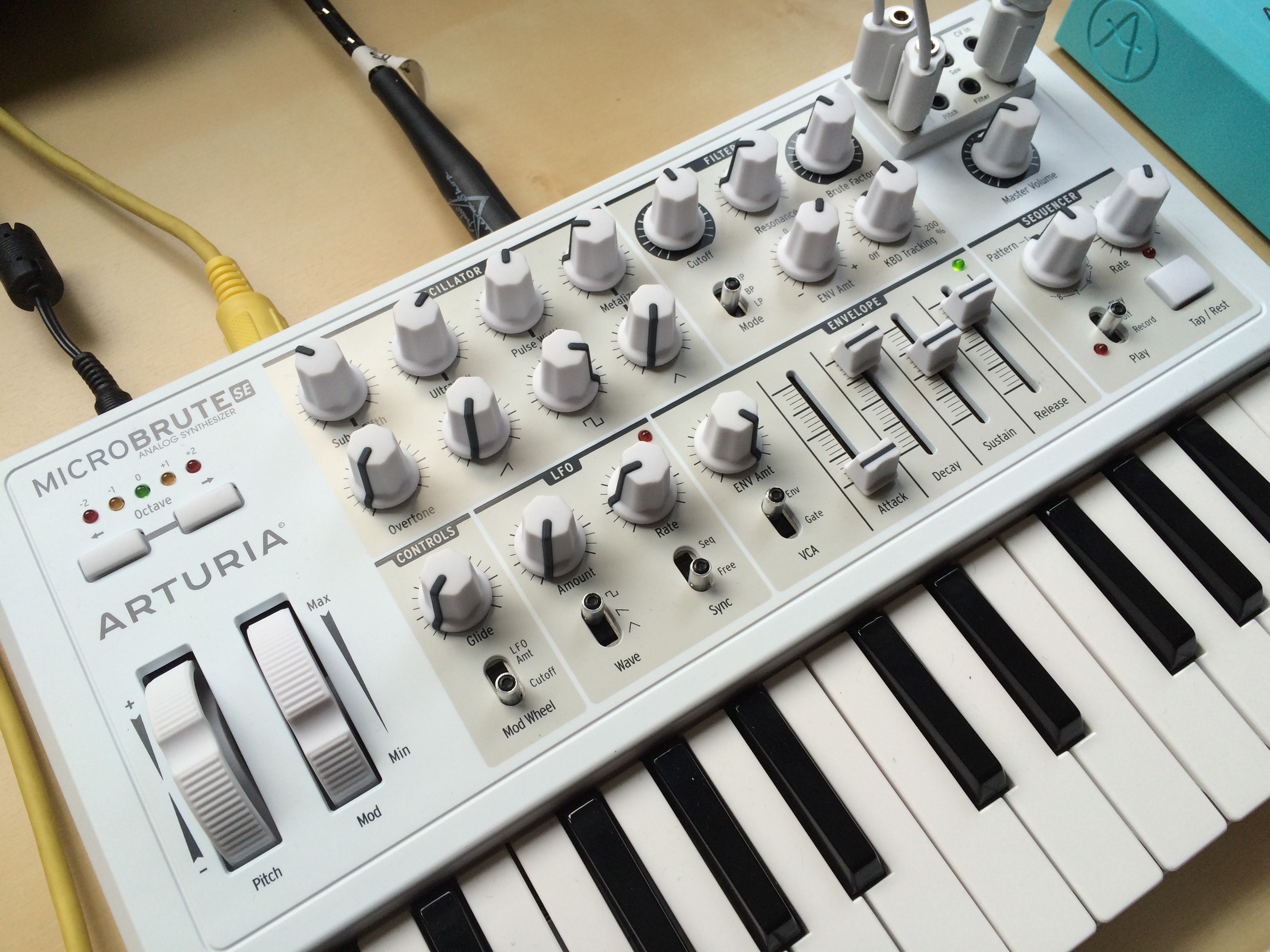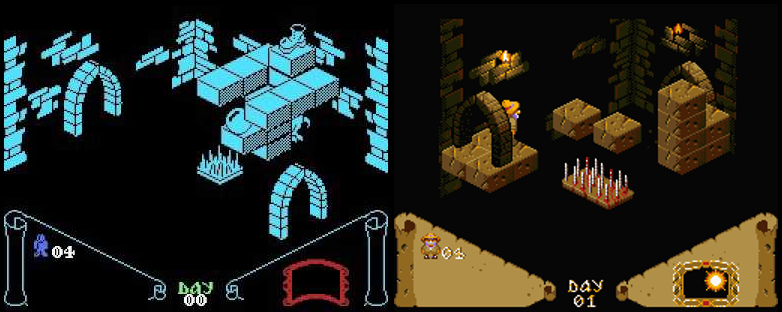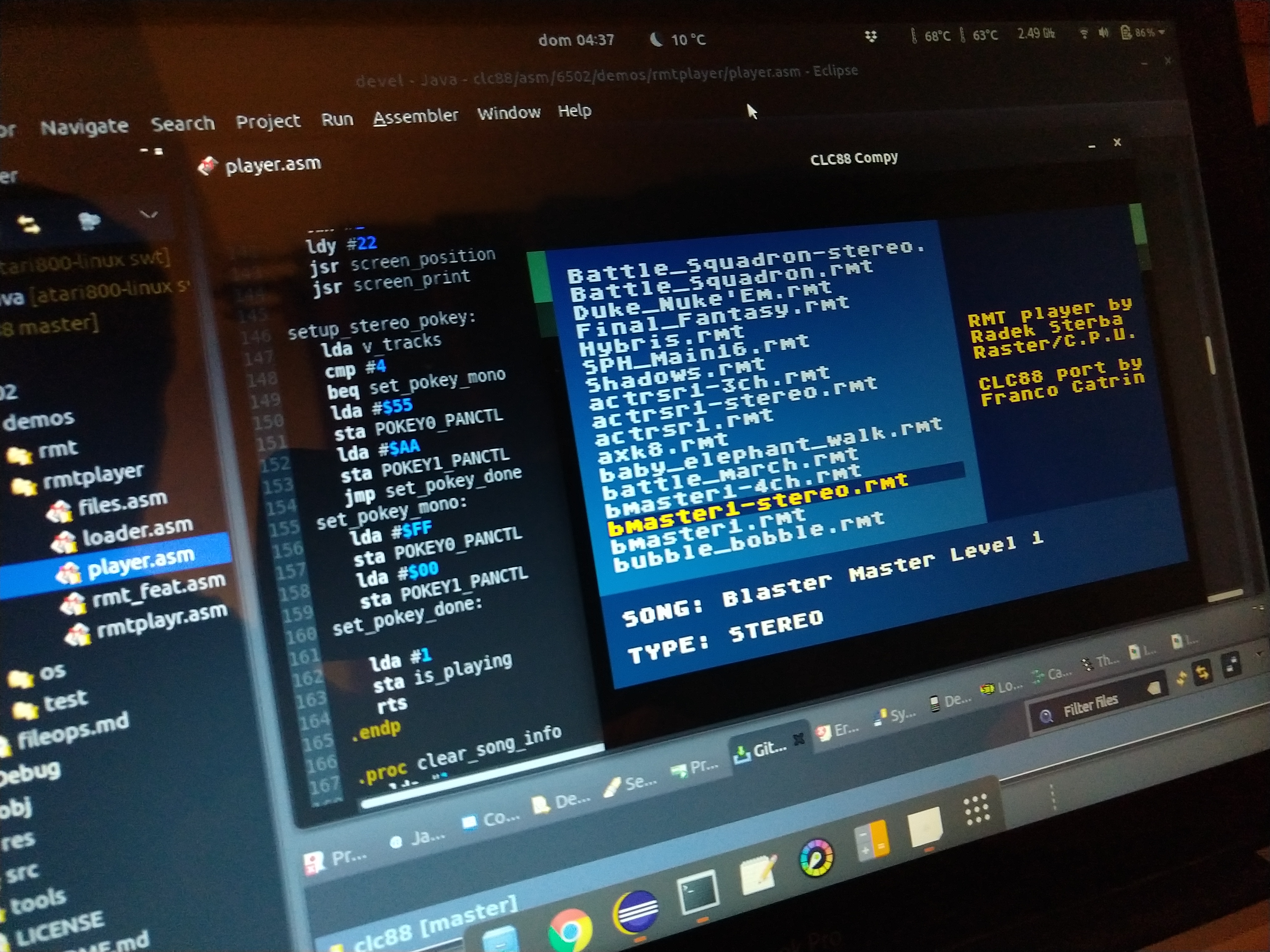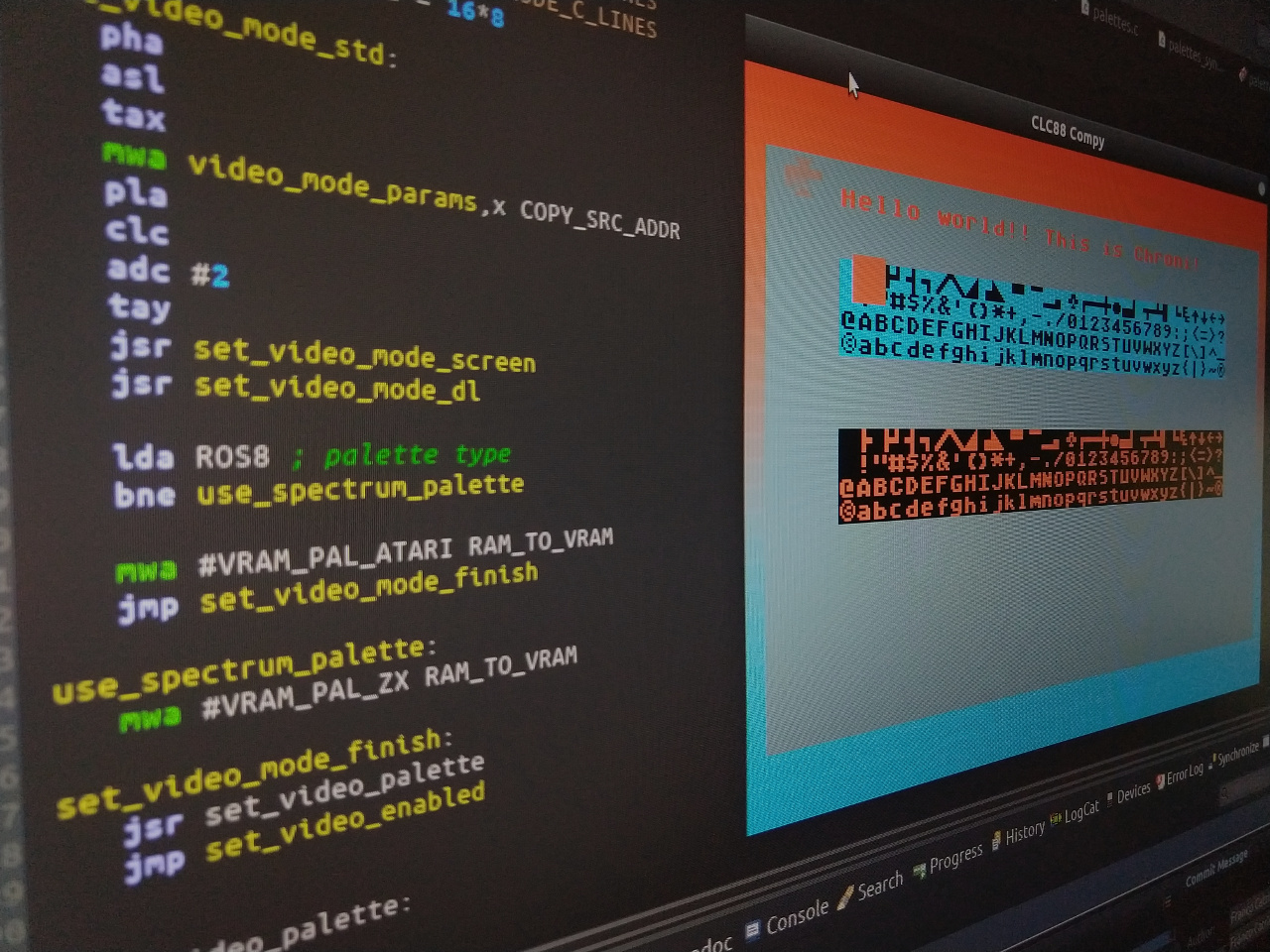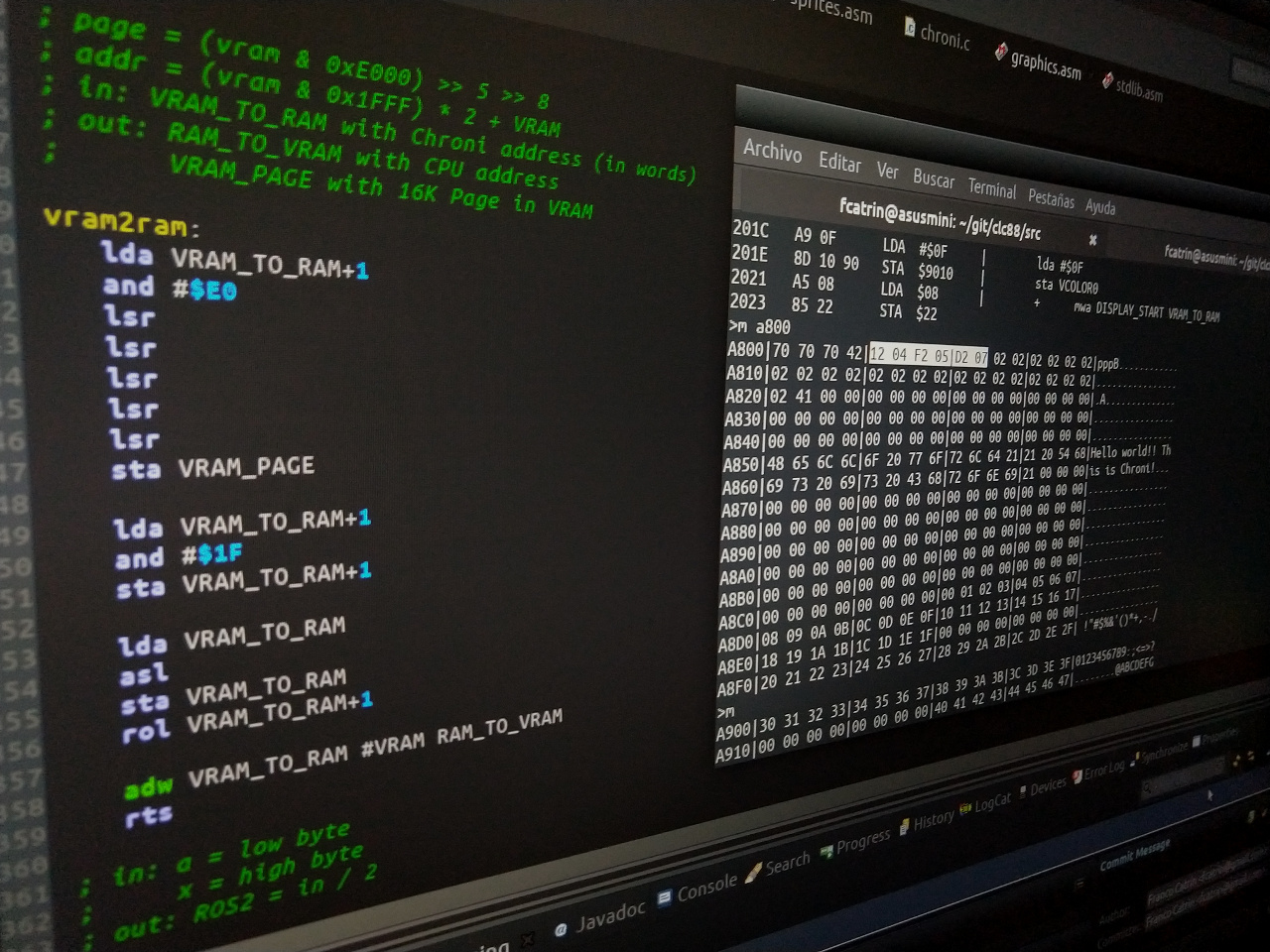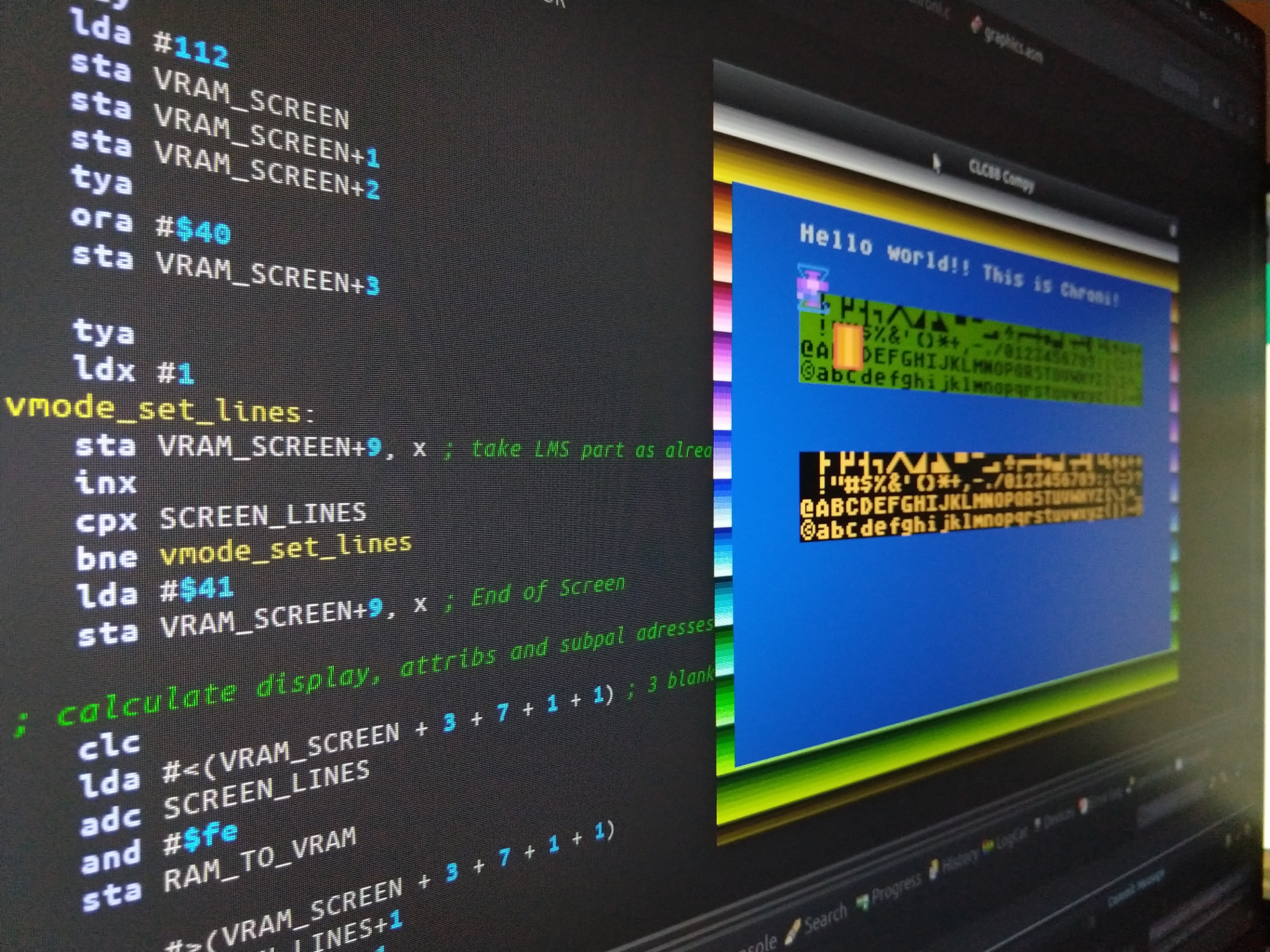This post is part of a series of three post about the recent updates on the FPGA implementation of Compy. Compy FPGA – Palettes and line buffers Compy FPGA – VRAM and Cornet CPU Compy FPGAs and how I got here (this one) I had a lot of problems in the way. A lot! Fortunately […]
Compy FPGA – VRAM and Cornet CPU
Compy FPGA – Palettes and line buffers
Output video modes for Chroni / Compy
The FPGA implementation of Compy has started, and it’s been a good way to confirm if the design ideas are feasible or not. One of the goals for Compy is to have a 4:3 display mode suitable for porting games from other systems using the 320×240 resolution as base as well as allowing processors like […]
Advanced Audio for Compy: FM synthesis and more
Porting games to Compy and its dual CPU
POKEY and the future of Audio in Compy
Today this project has reached a milestone: For the first time there is a full program running on Compy, not just a simple test code to check if some feature is working or not, but an application that uses several areas of this computer: the operating system, storage access, screen and keyboard handling, and more […]
Chroni Part 3: Color Palettes
The color palette can unequivocally identify a computer with a certain aesthetics, think of the vivid but few colors found in the ZX spectrum or the characteristic ’70ish colors found in the Atari to the grayish/blueish look of the C64. In short, the color palette gives the computer a certain personality. Choosing a color palette […]
Chroni Part 2: VRAM access
Chroni Video Processor (Part 1)
Finally Compy has a video processor and it is called Chroni! The name comes from “partners in time” and it was suggested by my friend Stuart Law as a variant of the British saying “Cronie, partners in crime”. Why partners in time? Because the CPU must operate in sync with the video processor and it […]
